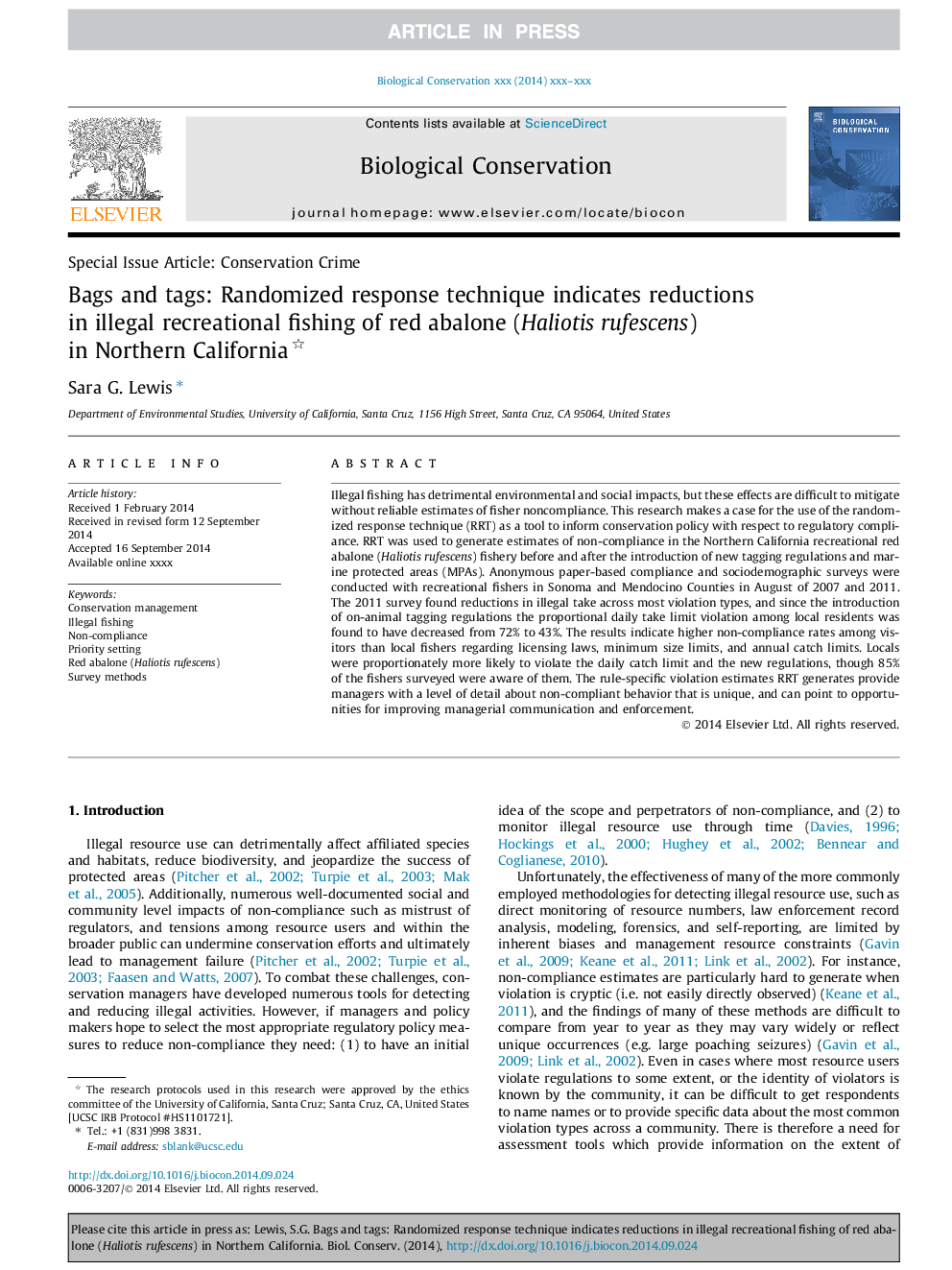| Article ID | Journal | Published Year | Pages | File Type |
|---|---|---|---|---|
| 6299165 | Biological Conservation | 2015 | 6 Pages |
Abstract
Illegal fishing has detrimental environmental and social impacts, but these effects are difficult to mitigate without reliable estimates of fisher noncompliance. This research makes a case for the use of the randomized response technique (RRT) as a tool to inform conservation policy with respect to regulatory compliance. RRT was used to generate estimates of non-compliance in the Northern California recreational red abalone (Haliotis rufescens) fishery before and after the introduction of new tagging regulations and marine protected areas (MPAs). Anonymous paper-based compliance and sociodemographic surveys were conducted with recreational fishers in Sonoma and Mendocino Counties in August of 2007 and 2011. The 2011 survey found reductions in illegal take across most violation types, and since the introduction of on-animal tagging regulations the proportional daily take limit violation among local residents was found to have decreased from 72% to 43%. The results indicate higher non-compliance rates among visitors than local fishers regarding licensing laws, minimum size limits, and annual catch limits. Locals were proportionately more likely to violate the daily catch limit and the new regulations, though 85% of the fishers surveyed were aware of them. The rule-specific violation estimates RRT generates provide managers with a level of detail about non-compliant behavior that is unique, and can point to opportunities for improving managerial communication and enforcement.
Related Topics
Life Sciences
Agricultural and Biological Sciences
Ecology, Evolution, Behavior and Systematics
Authors
Sara G. Lewis,
